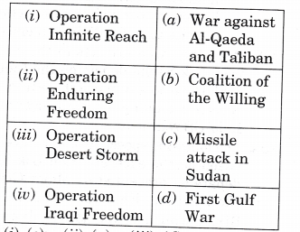Chapter 3 – US Hegemony in World Politics Questions and Answers: NCERT Solutions for Class 12 Political Science (Contemporary World Politics)
Class 12 Political Science (Contemporary World Politics) NCERT book solutions for Chapter 3 - US Hegemony in World Politics Questions and Answers.





